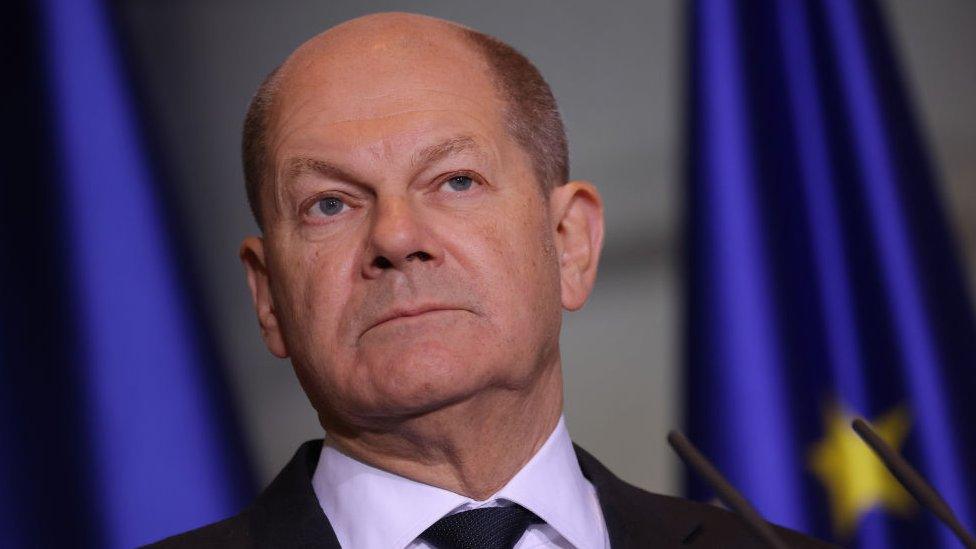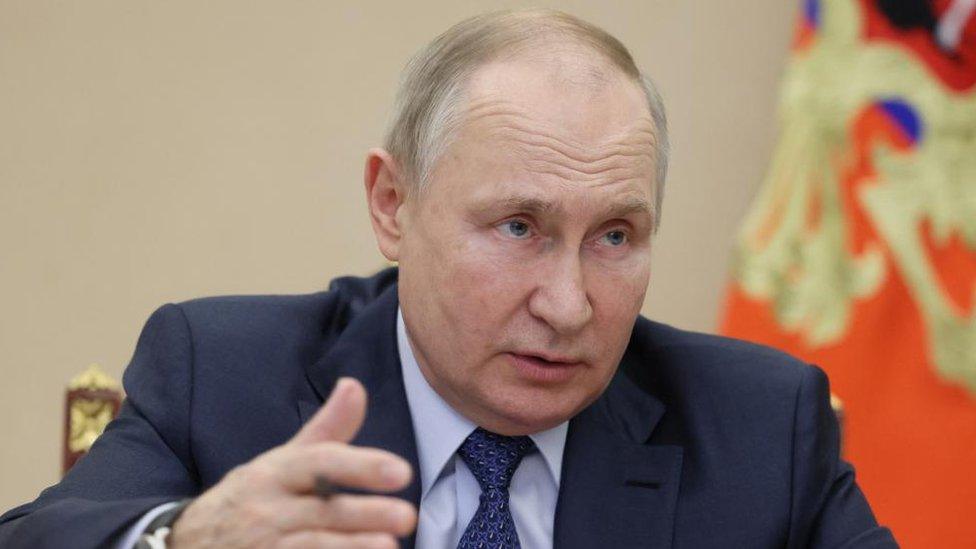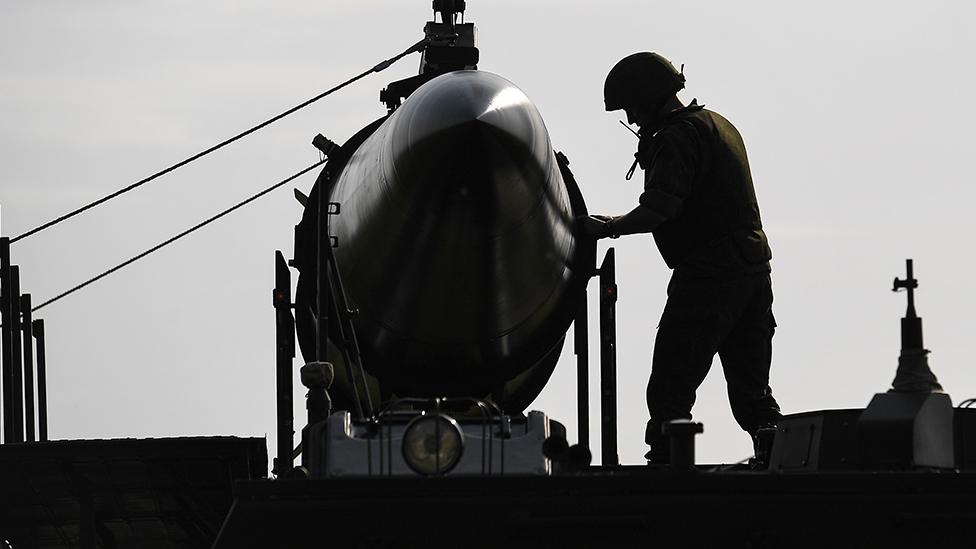Risk of Russia using nuclear weapons has lessened, says Germany's Scholz
- Published

Olaf Scholz
The risk of nuclear weapons being used in the Ukraine conflict has lessened "for the time being", says German Chancellor Olaf Scholz.
"Russia has stopped threatening to use nuclear weapons in response to the international community marking a red line," Mr Scholz said.
On Wednesday, Russia's Vladimir Putin suggested that Moscow would only use nuclear weapons in retaliation.
But the US denounced the comments as "loose talk".
Russia's capacity to use nuclear weapons has come under increased scrutiny since it invaded Ukraine in February. In an address to the nation in September, Mr Putin said his country had "various weapons of destruction" and would "use all the means available to us", adding: "I'm not bluffing."
In an interview on Thursday, Mr Scholz said that his recent visit to China had contributed to "putting a stop" to the threat of nuclear escalation.
He said that he and Chinese President Xi Jinping were in agreement that "nuclear weapons must not be used" and that the G20 countries had reaffirmed this position shortly afterwards.
The German chancellor's comment came the day after President Putin said that the risk of nuclear war is "growing - it would be wrong to hide it".
Speaking at a televised meeting of his human rights council, the Russian leader asserted that Russia would "under no circumstances" use the weapons first and would not threaten anyone with its nuclear arsenal.
"We have not gone mad, we are aware of what nuclear weapons are," he said, adding: "We aren't about to run around the world brandishing this weapon like a razor."
In the interview, Mr Scholz also addressed comments made by French President Emmanuel Macron that it would be necessary to provide "guarantees for its own security to Russia, the day it returns to the table" of negotiations.
"The priority now is for Russia to end the war immediately and withdraw its troops," he said, adding that "of course we are ready to talk with Russia about arms control in Europe. We offered this before the war, and this position has not changed."
Despite Mr Scholz's assessment that the risk has been lowered thanks to Western pressure, the US criticised Mr Putin's comments, which it said amounted to "loose talk" and "nuclear sabre-rattling".
"It is dangerous and it goes against the spirit of that statement that has been at the core of the nuclear non-proliferation regime since the Cold War," said a US state department spokesman.
Mr Scholz - who on Thursday marks one year since being elected chancellor - also touched upon the domestic defence issues that have been in the spotlight since the start of the war in Ukraine.
Shortly after Russia invaded the country, he announced a major defence policy shift by committing to spend €100bn (£86.4bn) on the Germany army and ramping up defence spending to above 2% of Germany's GDP.
Now Mr Scholz has said he hopes to develop a missile defence shield in the next five years and signalled that the German government is already in talks with manufacturers of various defence systems "to get ready for concrete decisions".
In other developments:
The International Committee of the Red Cross (ICRC) says it has managed to visit prisoners of war held by Russia and Ukraine after months of obstruction, primarily from Moscow, and checked on their condition and treatment. It gave them books, blankets, warm clothes - and news of their families.
On Wednesday, Russian President Vladimir Putin suggested that the Ukraine war could be a "long process", but insisted that Moscow's invasion had already yielded results as Russia had gained "new territories", referring to the regions it claimed to annex in September.
Eleven Ukrainian civilians were killed and 17 wounded by Russian fire in the past 24 hours, said Kyrylo Tymoshenko from the Ukrainian presidential office.
Ukraine is enforcing new emergency power cuts as it tries to repair energy infrastructure damaged in Russian air strikes. The governor of Zaporizhzhia region said there was a lack of energy nationwide and that currently the country only had "up to a third of [the energy] needed". Operator Ukrenergo said the situation was complicated by the weather, which lately has included frost, rain, snow and strong winds.
Related topics
- Published7 December 2022

- Published25 September 2022
